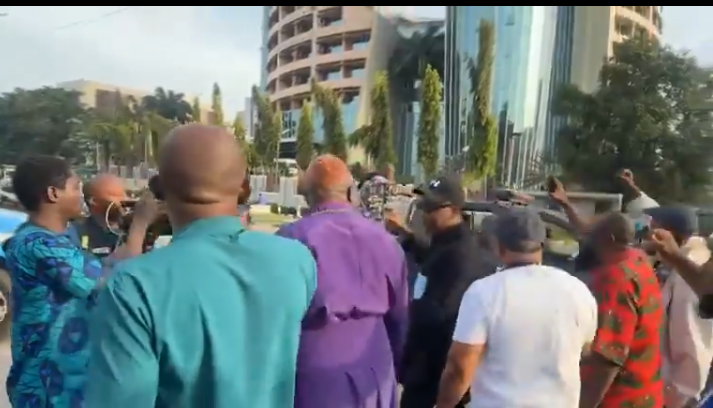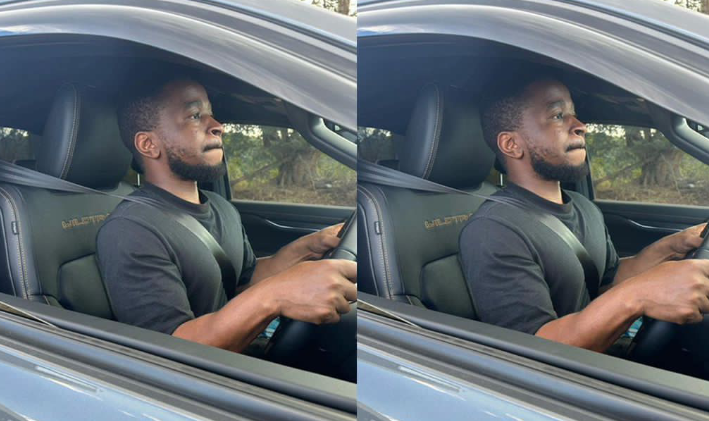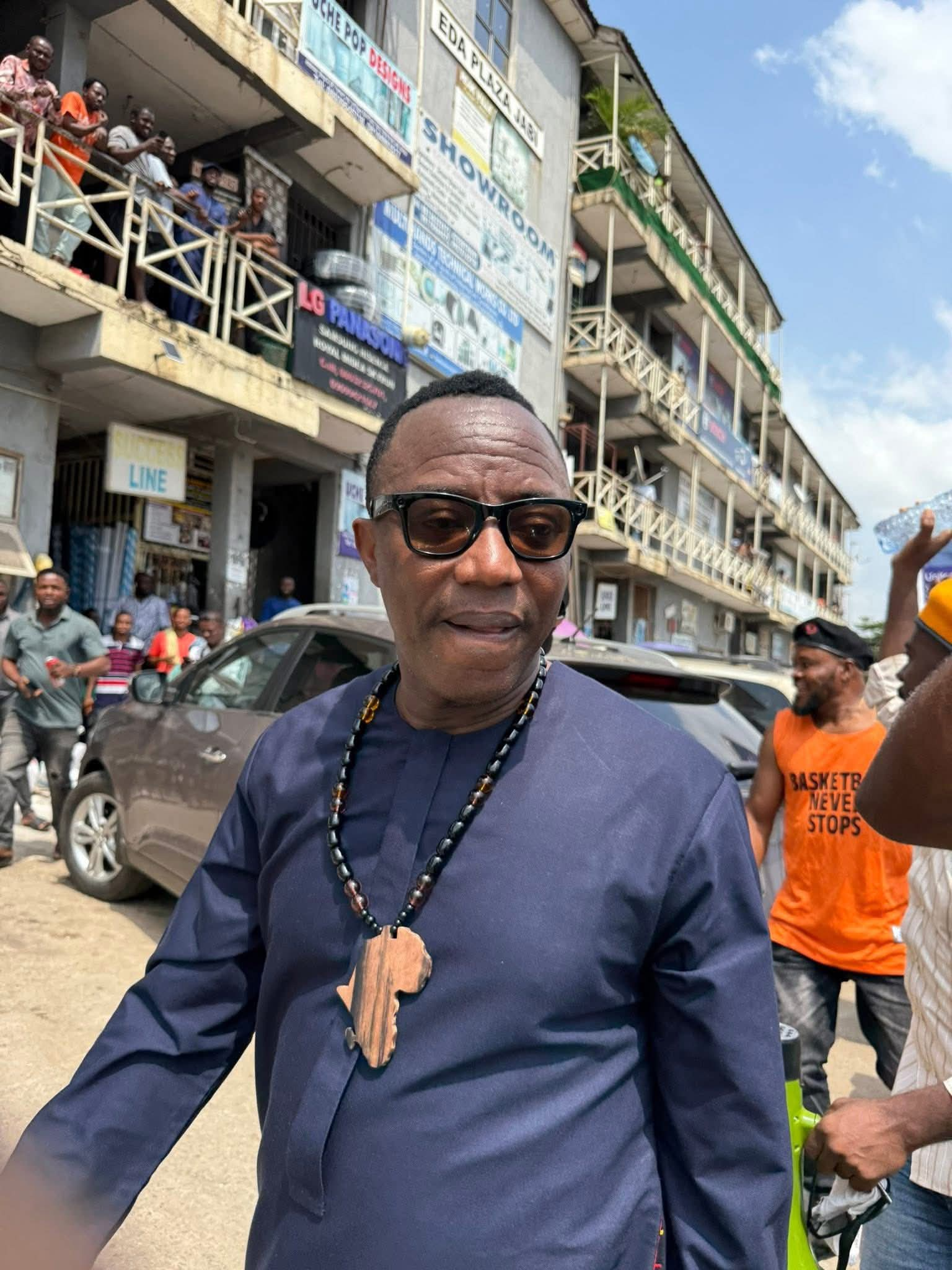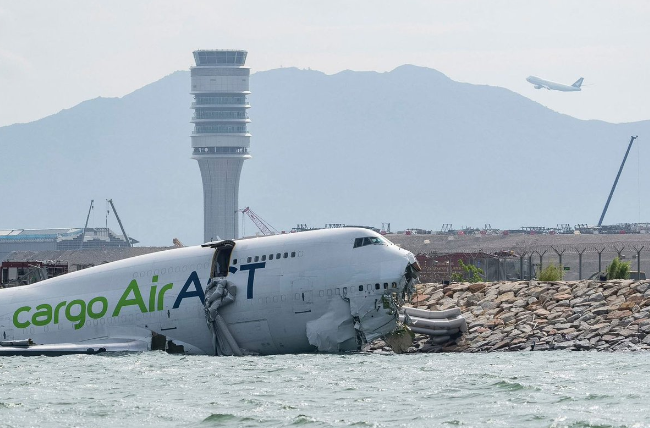
Tension in Abuja as Police Fire Teargas, Barricade Roads to Disperse #FreeNnamdiKanuNow Protesters

The city of Abuja descended into chaos on Monday morning as security operatives clashed with hundreds of protesters who stormed major streets demanding the immediate release of the detained leader of the Indigenous People of Biafra (IPOB), Nnamdi Kanu. The demonstration, tagged #FreeNnamdiKanuNow, saw scores of young men and women pouring into the Federal Capital Territory carrying placards, chanting solidarity songs, and calling on President Bola Tinubu’s administration to comply with court orders that reportedly granted Kanu bail. What began as a peaceful rally quickly escalated into tension as police units moved in to disperse the growing crowd, firing teargas canisters and blocking key roads around major government buildings.
Commuters were caught in the middle of the confrontation as thick clouds of teargas filled the air, sending people scampering for safety. Witnesses described scenes of panic as protesters fled in different directions, while a few defiant voices continued chanting “Free Nnamdi Kanu now!” despite the heavy police presence. By mid-morning, major routes including the Federal Secretariat, Eagle Square, and parts of the Central Business District were under lockdown, with armed officers stationed at strategic points. Several vehicles were turned back as the city’s traffic ground to a near standstill.
Videos circulating on social media showed protesters waving Biafran flags and holding banners accusing the government of injustice, with inscriptions such as “Obey Court Orders” and “Nnamdi Kanu Is Not a Terrorist.” Some demonstrators, wearing T-shirts branded with Kanu’s image, accused the Nigerian government of violating human rights and ignoring due process. The atmosphere was thick with emotion as the crowd shouted in unison, “Enough is enough! Free our leader!” Reports suggest that the protesters had gathered as early as 7:00 a.m. around the Unity Fountain before security agents intervened to prevent them from marching toward the National Assembly and Presidential Villa.
The police, however, defended their actions, saying the protesters did not obtain the necessary permit for the demonstration and that their activities posed a threat to public peace. In a statement released by the Federal Capital Territory Police Command, spokesperson SP Josephine Adeh said the command would not tolerate any form of protest that could disrupt the city’s peace or cause damage to public infrastructure. She confirmed that security personnel had been deployed to “prevent any breakdown of law and order,” insisting that the crowd had turned violent before officers resorted to the use of teargas. She added that several individuals had been taken into custody for questioning.
Despite the crackdown, some of the demonstrators vowed not to back down, saying the protest would continue until Nnamdi Kanu is released unconditionally. A middle-aged man who identified himself as Emeka told reporters, “They can fire all the teargas they want, we are not afraid. Nnamdi Kanu has suffered enough. The courts have ordered his release several times, yet the government keeps ignoring it. We are here to say enough is enough.” Another protester, a woman in her thirties who gave her name as Ngozi, said the agitation was not about violence but justice. “We came out peacefully, we didn’t carry any weapon. We only want our brother to be free. Is it a crime to ask for justice?” she said tearfully, holding a placard that read ‘Release Nnamdi Kanu Now!’
Shops and offices around the Central Business District hurriedly shut their doors as tension rose, while schools in the area reportedly advised parents to pick up their children early. The usually busy Berger Roundabout, Wuse Zone 2, and Garki areas experienced heavy traffic gridlock as motorists tried to avoid the confrontation zones. Residents complained of the choking effects of the teargas that spread far beyond the protest area, with some describing the situation as “a war zone.”
Nnamdi Kanu, the leader of the proscribed IPOB group, has been in the custody of the Department of State Services (DSS) since June 2021 after being re-arrested and extradited to Nigeria from Kenya. He faces multiple charges including treasonable felony, incitement, and membership of an unlawful organization. Over the years, his detention has sparked numerous protests across the South-East and beyond, often leading to violent clashes and economic shutdowns. The renewed agitation in Abuja follows renewed calls from several Igbo groups, activists, and legal experts urging the government to release Kanu in compliance with court rulings that declared his continued detention illegal.
Human rights organizations have also waded into the matter, condemning the use of force against peaceful demonstrators. Amnesty International Nigeria, in a statement posted on X (formerly Twitter), described the police action as a violation of fundamental rights and urged authorities to respect the constitutional freedom of expression and assembly. “The government must stop using excessive force against citizens exercising their right to protest,” the organization stated, adding that peaceful calls for justice should never be met with violence.
Meanwhile, the Presidency has remained silent on the fresh protests, although some political analysts say the government is wary of reopening the sensitive issue of IPOB agitation amid ongoing security challenges in the South-East. Analysts warn that the Abuja protest could reignite similar demonstrations in other cities if not handled carefully. “The use of teargas and arrests might only inflame tensions further,” said political commentator Jide Ojo. “This is a legal and political matter that requires dialogue and respect for judicial processes, not brute force.”
By afternoon, the number of protesters had dwindled as the police maintained a tight grip on the city center. Armored personnel carriers were seen patrolling major intersections, while officers continued to disperse small clusters of protesters regrouping at different corners. Some of those detained were reportedly taken to the police headquarters for interrogation. The authorities have yet to release the exact number of arrests or whether any injuries were recorded during the face-off.
As the day wore on, social media remained abuzz with hashtags like #FreeNnamdiKanuNow, #JusticeForKanu, and #AbujaProtest, trending nationwide. Many Nigerians online expressed mixed reactions — while some accused the government of intolerance and human rights abuse, others cautioned that such protests could destabilize the peace of the capital. A few voices also called on the Federal Government to open a dialogue with Kanu’s legal team and leaders from the South-East to find a peaceful resolution to the matter.
As night fell over the capital, the air still carried faint traces of teargas, and the roads once filled with chants of defiance were now eerily quiet. But the message of the protesters lingered — a call for justice, freedom, and respect for the rule of law. Whether their voices will compel the authorities to act remains uncertain, but one thing is clear: the agitation for Nnamdi Kanu’s release has once again thrust Nigeria’s deep political divisions and human rights concerns into the national spotlight. The events in Abuja may have been silenced by force for now, but the echoes of the protesters’ cries for freedom continue to reverberate across the country.
Police fire teargas, barricade roads in Abuja as #FreeNnamdiKanuNow protesters storm streets
— Instablog9ja (@instablog9ja) October 20, 2025
pic.twitter.com/jJbeJpal65


